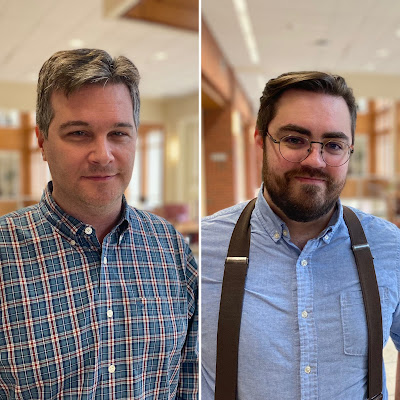University of Oklahoma students learn skills needed to work in developing regions
- Get link
- X
- Other Apps
A new University of Oklahoma summer intersession course seeks to prepare students to work in developing regions. The class starts essentially from square one — most of the students haven't handled power tools. Many haven't even hammered nails.
| William Mwangi cuts a board in OU’s WaTER Center field methods course Monday. |
I could really hurt somebody with this thing, she thought.
Humphrey, 22, is a part of a new course at the University of Oklahoma designed to teach students like Humphrey how to work in developing countries.
Humphrey, a fifth-year undergraduate, hails from Fort Worth, Texas.
After Humphrey graduates, she'd like to do water resources work in a developing country, either through a corporation or a nongovernmental organization. But there's a problem, she said.
“I've never built my own stuff before,” said Humphrey, an environmental engineering major. She said she had used smaller hand tools like hammers and nails, but she hadn't handled power tools before.
Her classes are lectures or lab-based, she said, and they typically don't delve far into manual labor.
Even outside of school, she hasn't had many experiences that would call for power tools.
“I'm a city girl,” she said.
Practical experience
Jim Chamberlain, the course instructor, said students like Humphrey are the reason the course exists.
Most of them have limited, or no experience working with materials like concrete block and PVC pipe — exactly the materials they'd be using in those regions.
The course is offered through OU's Water Technologies for Emerging Regions Center, or WaTER Center, a part of the School of Civil Engineering and Environmental Science. It runs six hours a day through OU's summer intersession, which began Monday.
The class starts essentially from square one, Chamberlain said. Most of the students haven't handled power tools. Many haven't even hammered nails. But nearly all of them want to work in developing regions in one capacity or another.
Ideally, Chamberlain said, the course will help those students get comfortable working with those materials.
It won't turn them into experts overnight, he said — they won't be able to leave the course and go to work building houses, for example — but it puts them in a better position to do meaningful development work.
Monday, the class built concrete pavers.
They cut and nailed two-by-fours to make forms and mixed and poured concrete.
Later in the class, students will be designing a compost latrine and learning to dig wells both with diesel drills and by hand.
They'll also learn to build bio-sand filters, a kind of water filtration system that uses a layer of bacteria to remove contaminants from water, and conduct baseline health surveys that will help them figure out how to address the needs of a community and, eventually, how effective their solutions are.
Although the course is offered through the School of Civil Engineering and Environmental Science, it's open to anyone on campus.
Only about half the students in this session are engineering majors, Chamberlain said.
The other come from a range of disciplines — business, international studies, microbiology and pre-med.
Helping others
They also have different plans for the kind of work they want to do, he said. Some, like Humphrey, hope to make a career out of development work.
Others want to be doctors in the U.S. and go on occasional medical mission trips to developing regions. But the one thing the students all have in common, he said, is an interest in trying to better the lives of people in developing communities.
“We have a lot of students who have a desire to do development work,” he said.
It won't turn them into experts overnight, he said — they won't be able to leave the course and go to work building houses, for example — but it puts them in a better position to do meaningful development work.
Monday, the class built concrete pavers.
They cut and nailed two-by-fours to make forms and mixed and poured concrete.
Later in the class, students will be designing a compost latrine and learning to dig wells both with diesel drills and by hand.
They'll also learn to build bio-sand filters, a kind of water filtration system that uses a layer of bacteria to remove contaminants from water, and conduct baseline health surveys that will help them figure out how to address the needs of a community and, eventually, how effective their solutions are.
Although the course is offered through the School of Civil Engineering and Environmental Science, it's open to anyone on campus.
Only about half the students in this session are engineering majors, Chamberlain said.
The other come from a range of disciplines — business, international studies, microbiology and pre-med.
Helping others
They also have different plans for the kind of work they want to do, he said. Some, like Humphrey, hope to make a career out of development work.
Others want to be doctors in the U.S. and go on occasional medical mission trips to developing regions. But the one thing the students all have in common, he said, is an interest in trying to better the lives of people in developing communities.
“We have a lot of students who have a desire to do development work,” he said.


